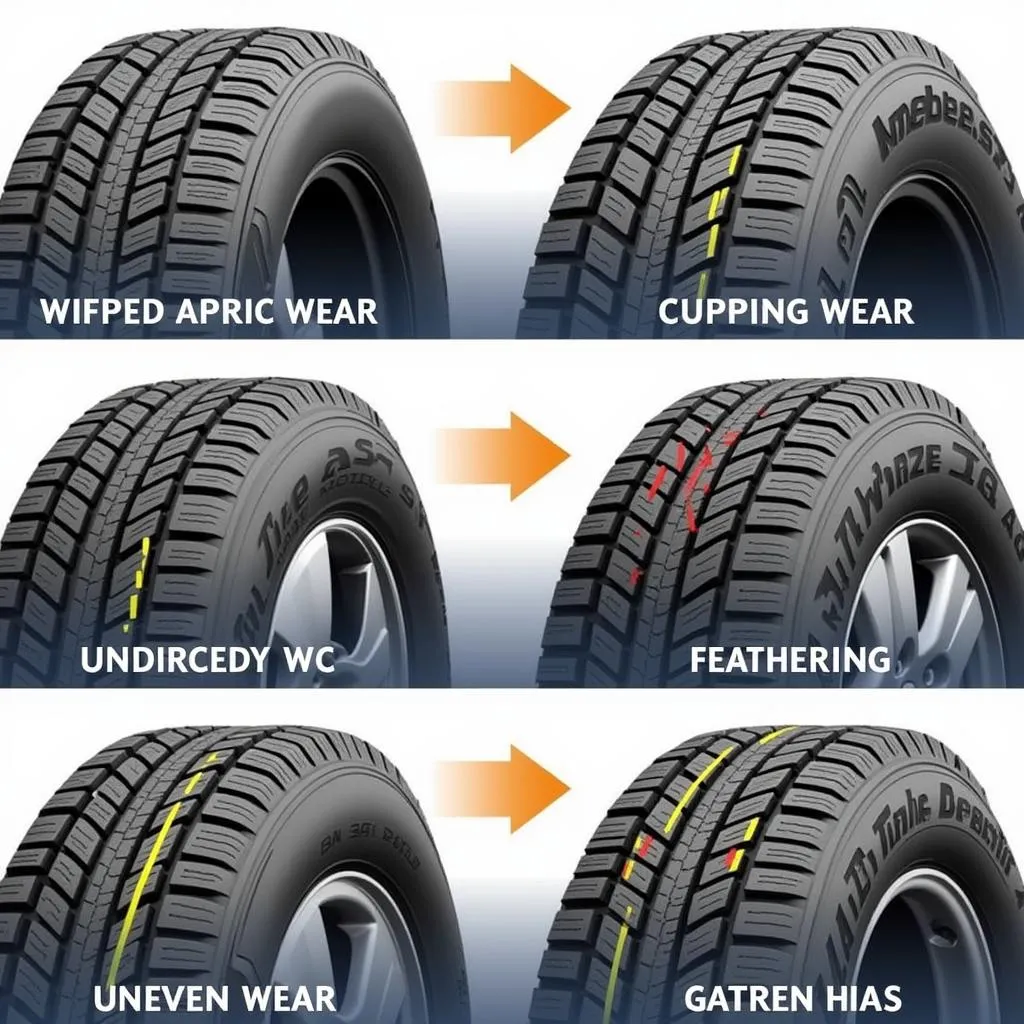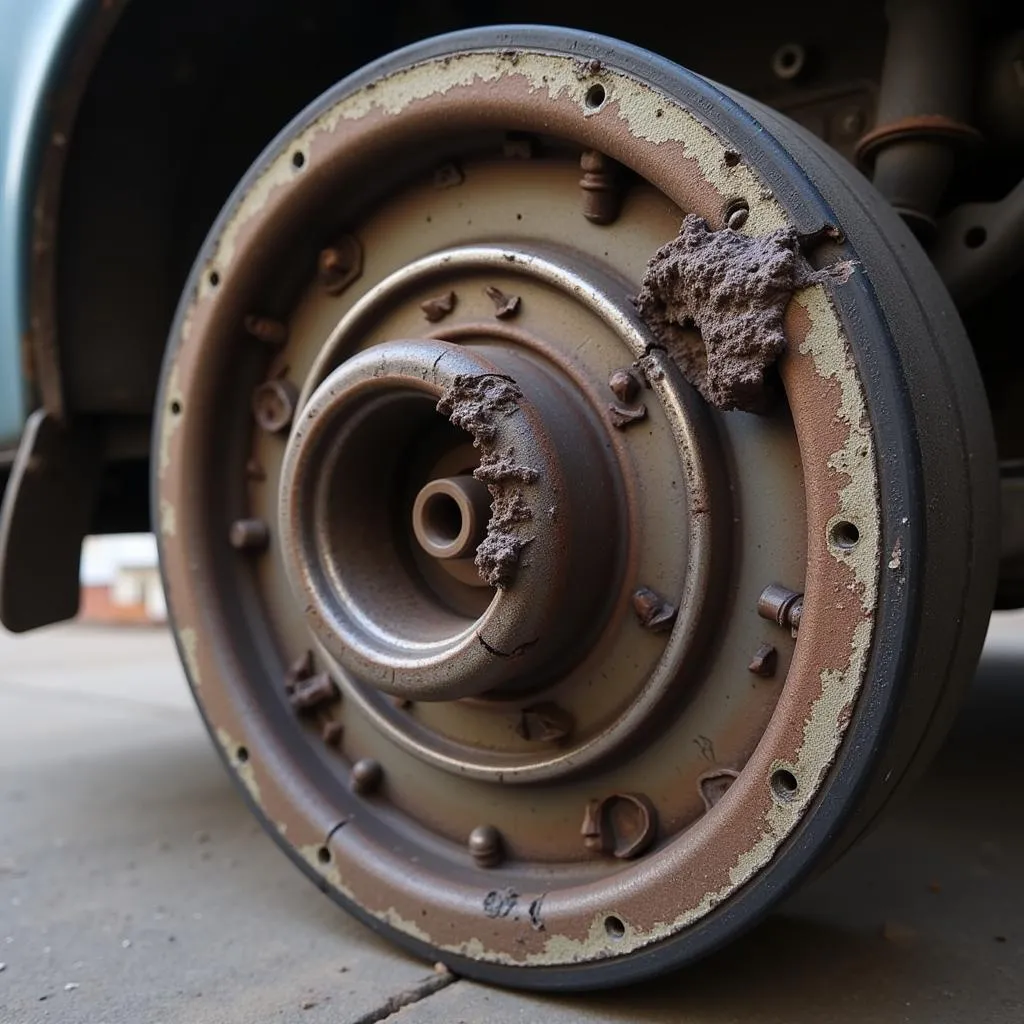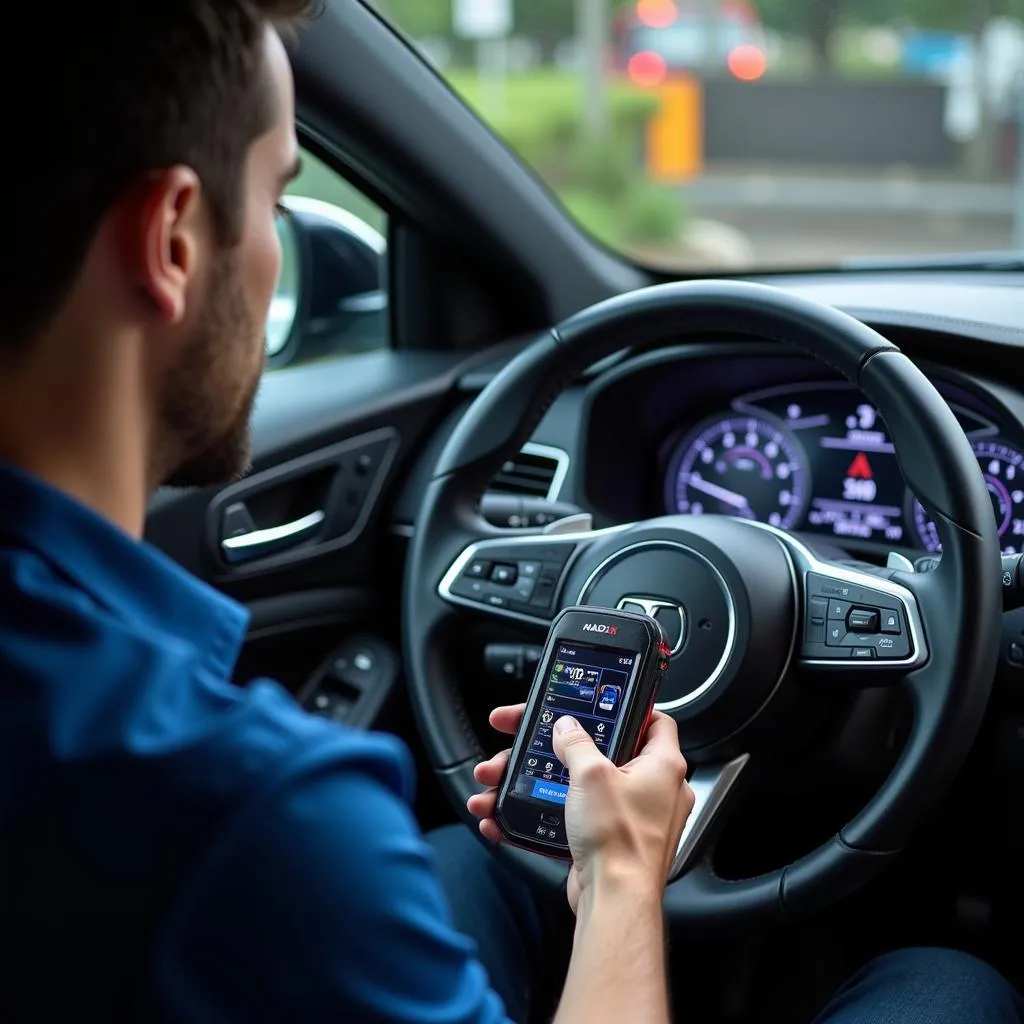Experiencing a shaking car, especially at higher speeds like 60 mph, can be alarming and signal an underlying issue with your vehicle. While there are various reasons your car might shake at 60 mph, some common culprits often emerge as the primary suspects. This article will delve into the potential causes of car shaking at 60 mph and explore possible solutions to get you back on the road smoothly.
 Tire Wear Patterns
Tire Wear Patterns
Common Causes of Car Shaking at 60 MPH
Several factors can contribute to your car shaking at higher speeds. Here are some of the most common culprits:
1. Tire Issues:
Tires are the most frequent cause of vibrations felt at higher speeds.
- Unbalanced tires: When your tires aren’t balanced correctly, it means the weight isn’t distributed evenly around the tire and wheel assembly. This imbalance can cause vibrations that become increasingly noticeable as you accelerate, especially around the 50-70 mph mark.
- Misaligned wheels: If your wheels are misaligned, your tires aren’t hitting the road at the correct angle. This can lead to uneven tire wear and vibrations that worsen with speed, often felt through the steering wheel.
- Worn tires: Worn-out tires with uneven tread or bulges can create an uneven road surface, leading to vibrations, especially at higher speeds.
- Damaged tires: Impacts from potholes or curbs can damage a tire’s internal structure, leading to bulges or unevenness that cause vibrations.
2. Wheel Bearing Problems:
Wheel bearings allow the wheels to rotate smoothly. Worn or damaged wheel bearings can cause vibrations that increase with speed and may be accompanied by a humming or grinding noise.
 Worn Out Wheel Bearing
Worn Out Wheel Bearing
3. Suspension Component Wear:
Worn-out suspension components, such as ball joints, tie rod ends, or control arm bushings, can cause excessive movement and vibrations in the vehicle, especially noticeable at higher speeds.
4. Brake Problems:
While less common, a sticking brake caliper or warped brake rotor can cause shaking or pulsating, particularly when braking but sometimes even when coasting at speed.
5. Engine Issues:
In some cases, engine problems like misfires, worn spark plugs, or a clogged fuel filter can cause vibrations that are felt throughout the vehicle, even at highway speeds.
Diagnosing the Problem
Identifying the exact cause of your car shaking at 60 mph requires a systematic approach:
- Check your tires: Inspect your tires for visible signs of wear, damage, bulges, or uneven tread.
- Listen for unusual noises: Pay attention to any humming, grinding, clicking, or thumping noises coming from the wheels or undercarriage while driving.
- Feel for vibrations: Note if the vibrations are felt through the steering wheel, the seat, or the entire vehicle.
- Consider the speed: Determine if the shaking occurs only at a specific speed range or under certain driving conditions.
If you suspect any of these issues, it’s essential to take your car to a trusted mechanic or dealership for a professional diagnosis.
 Car Diagnostic Tool Use
Car Diagnostic Tool Use
Solutions and Repairs
The solutions for car shaking at 60 mph depend entirely on the underlying cause.
- Tire issues: Solutions range from tire balancing and wheel alignment to tire rotation or replacement, depending on the severity of the issue.
- Worn wheel bearings: Worn wheel bearings will need to be replaced to resolve the vibrations.
- Suspension problems: Damaged or worn suspension components must be repaired or replaced to restore proper handling and eliminate vibrations.
- Brake problems: Solutions may involve replacing brake pads, machining or replacing rotors, or fixing a sticking caliper.
- Engine problems: Addressing engine-related issues may involve replacing spark plugs, fuel filters, or addressing more significant engine problems.
FAQs About Car Shaking at 60 mph
Q: Why does my car only shake at 60 mph?
A: Vibrations at specific speed ranges often point to tire or wheel issues. At 60 mph, the resonance frequency of these components might align with road imperfections, amplifying the vibrations.
Q: Can a wheel alignment fix car shaking?
A: A wheel alignment can fix shaking caused by misaligned wheels, but it won’t solve problems stemming from unbalanced tires, worn bearings, or other issues.
Q: Is it safe to drive with a car that shakes at 60 mph?
A: It’s not safe to ignore vibrations, especially at high speeds. Continued driving with a shaking car can worsen the underlying problem and potentially lead to a dangerous situation.
car shakes at 60 mph then stops
Don’t Ignore the Shakes
Experiencing car shakes above 60 mph can be unnerving, but understanding the common causes and taking prompt action can ensure a smoother and safer ride. Remember, early detection and repair are crucial to prevent further damage and costly repairs down the line.
If your car shakes after 60mph, don’t hesitate to seek professional help. By addressing the issue head-on, you can restore your vehicle’s performance and enjoy worry-free driving. And if you’re experiencing vibrations even when going over 60, a thorough inspection is vital to pinpoint the root cause.
For those experiencing vibrations while the car is stationary, you might want to explore resources like ” why is my car vibrating in park” to understand and address that specific issue.